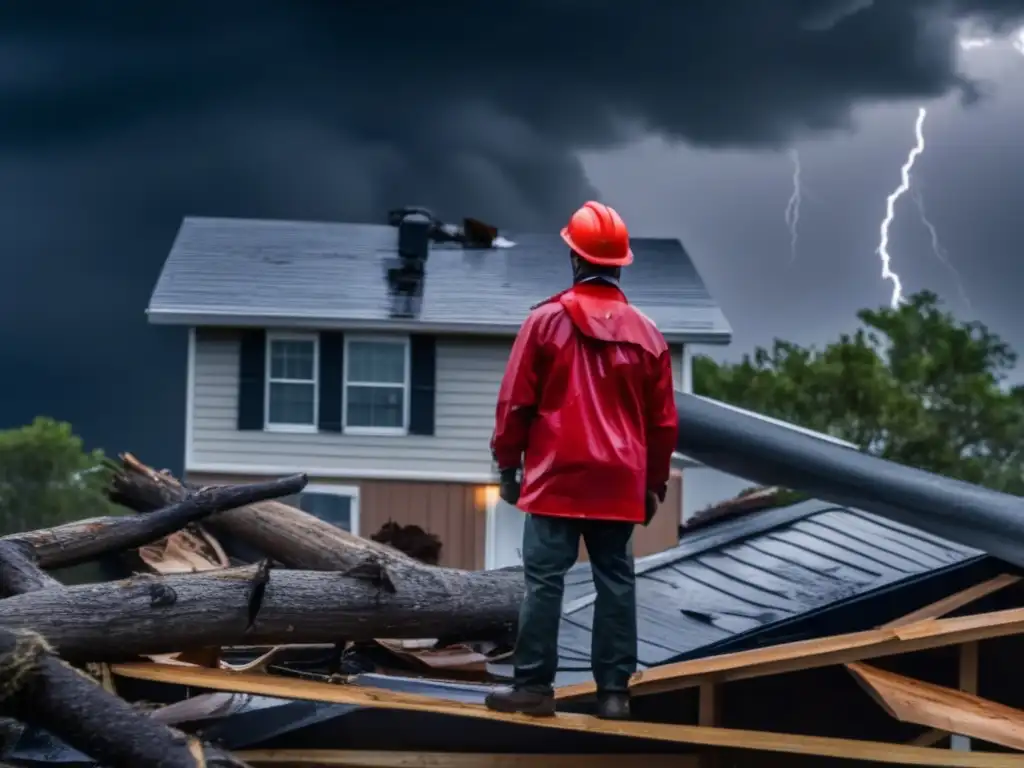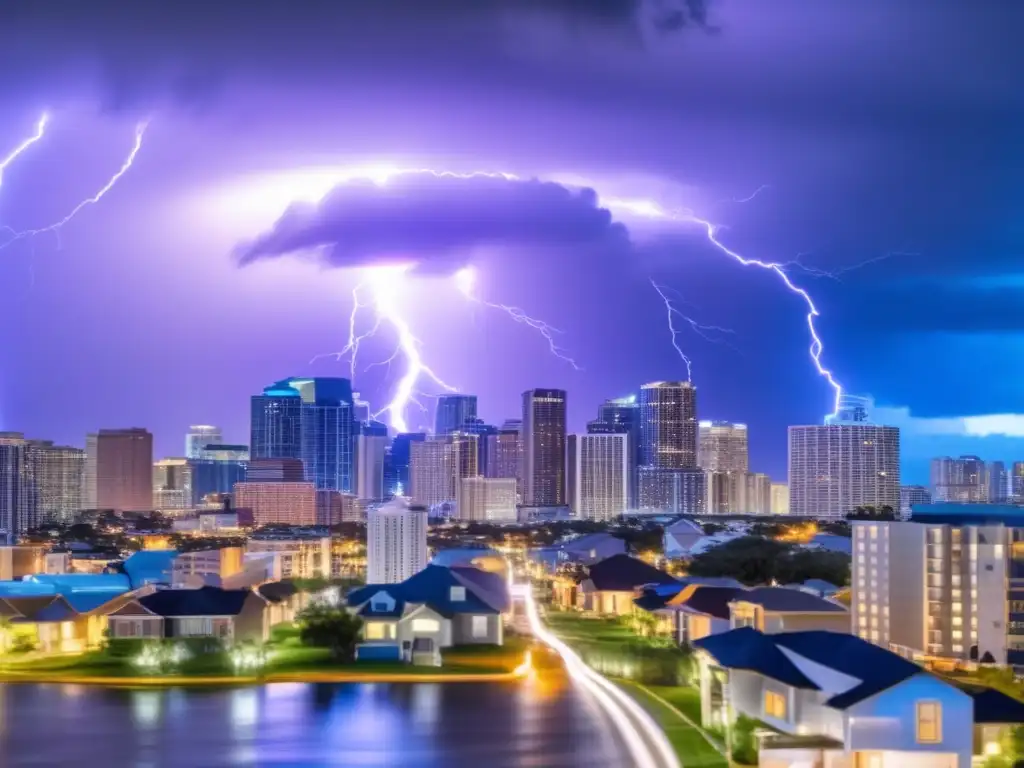When To Evacuate: Timing Matters In Hurricane Preparedness

When to Evacuate: Timing Matters in Hurricane Preparedness
Introduction
When it comes to hurricane preparedness, one of the most critical decisions you can make is knowing when to evacuate. Evacuating too early can be an inconvenience, and evacuating too late can be a disaster. Additionally, with hurricanes becoming more frequent and intense over the years, it is essential to make informed decisions on how to prepare and when to leave your home. In this article, we will discuss the best practices for timing your evacuation and what you need to know before leaving your home.
Understanding the Different Hurricane Watches and Warnings

Recognizing a Hurricane Watch
A hurricane watch is typically issued 48 hours before expected tropical storm-force winds are predicted to hit a particular area. A watch means that hurricane conditions are possible within the area being watched.
Recognizing a Hurricane Warning
A hurricane warning is typically issued 36 hours in advance of the onset of tropical storm-force winds. A warning means that sustained winds of at least 74 mph are expected to hit the area being warned.
The Importance of Heeding Hurricane Warnings
It is crucial to take hurricane warnings seriously. They are issued for a reason, and not evacuating when given the chance could result in significant damages and even loss of life. Hurricane warnings often mean that there is inadequate time for preparation, and residents should focus on leaving instead of securing their homes. Additionally, it is important to remember that storm surges can be the most dangerous aspect of a hurricane, and it is essential to avoid areas that could be affected by them, even if you think you are safe from the wind and rain.
Factors to Consider When Deciding to Evacuate

Proximity to the Coastline
If you are living in a coastal area, it is crucial to evacuate before a hurricane makes landfall. Coastal areas are often the most affected by hurricanes, and residents might have a very short window of time to evacuate as the storm approaches. Do not wait for official announcements, as they might come too late, and the situation could be too dangerous.
Size and Intensity of the Hurricane
The size and intensity of a hurricane are major factors that will influence your decision to evacuate. Larger storms are more likely to cause flooding and damage to properties, while more powerful hurricanes will generate stronger winds and create greater destruction. Evacuating early when you are aware of the size and intensity of a hurricane can help to save lives and property.
Building Safety
If you live in a building that has not undergone repairs or upgrades necessary to withstand the force of a hurricane, evacuate ahead of time. This includes buildings with non-impact resistant windows, flimsy roofs, or those made from weak materials. Don't put yourself at unnecessary risk, especially if your living area is in the path of the forecasted hurricane.
Planning Your Evacuation

Have an Evacuation Plan in Place
Having a well-planned evacuation plan can make the difference between safely leaving your home and getting caught in a chaotic situation. Start by identifying multiple evacuation routes in advance and test them out for efficiency and accessibility. If you have pets, include them in your plan, and make sure they are registered for pet-friendly shelters in your area. Finally, have an emergency kit with essential supplies such as water, non-perishable food, batteries, and medicine.
Stay Updated with the Latest Information
Monitor the weather conditions through official sources such as the National Hurricane Center and listen to local authorities for updates. Be aware of evacuation orders and follow them immediately. Keep a radio or television on to receive regular updates, and have alternate power sources such as generators or portable power banks in case of power outages.
Avoid Traffic and Congestion
Plan your evacuation ahead of time to avoid traffic and congestion, which can be life-threatening in emergency situations. Leave early, if possible, and use alternative routes to reach your destination. Know where you are headed and make sure your destination is safe from the predicted hurricane's impacts.
Frequently Asked Questions

-
When should I evacuate for a hurricane?
You should evacuate when the National Hurricane Center or local authorities issue an evacuation order or when you feel it is necessary based on the size and intensity of the hurricane, your proximity to the coastline, and the safety of your building.
-
How do I know if there is an evacuation order?
You can find out about evacuation orders through official sources such as your local news outlets and the National Hurricane Center. Listen to your local authorities and follow their instructions.
-
What should I bring with me when evacuating?
You should bring essential supplies like water, non-perishable food, batteries, and medicine. Have cash on hand in case of power outages, and bring important documents such as passports, insurance papers, and identification cards.
-
What should I do with my pets when evacuating?
If you have pets, plan ahead for their evacuation and make sure they are included in your emergency kit. Look for pet-friendly shelters in your area and register your pets beforehand.
-
What should I do if I am unable to evacuate before a hurricane?
If you are unable to evacuate before a hurricane, find a safe place within your building, like an interior room or hallway. Stay away from windows and doors and move to higher floors if necessary to avoid flooding.
Conclusion
Knowing when to evacuate is critical in hurricane preparedness. It can mean the difference between life and death, and it is important to understand the various factors that influence your decision to leave your home. Always heed hurricane warnings and evacuate when instructed by local authorities, as it is better to be safe than sorry. Have a well-planned evacuation strategy and stay updated with the latest updates and information during hurricanes. By doing so, you can ensure that you and your loved ones will stay safe during and after the storm.
If you have any additional questions or comments, feel free to share them in the comments section below. We would appreciate it if you could share this article with friends and family who live in hurricane-prone areas to help them prepare and stay safe.
Additional Resources

- Ready.gov: Hurricane Preparedness
- National Weather Service: Hurricane Plan
- CDC: Hurricane Preparedness
If you want to discover more articles similar to When To Evacuate: Timing Matters In Hurricane Preparedness, you can visit the Hurricane preparedness: category.
Leave a Reply




Articulos relacionados: